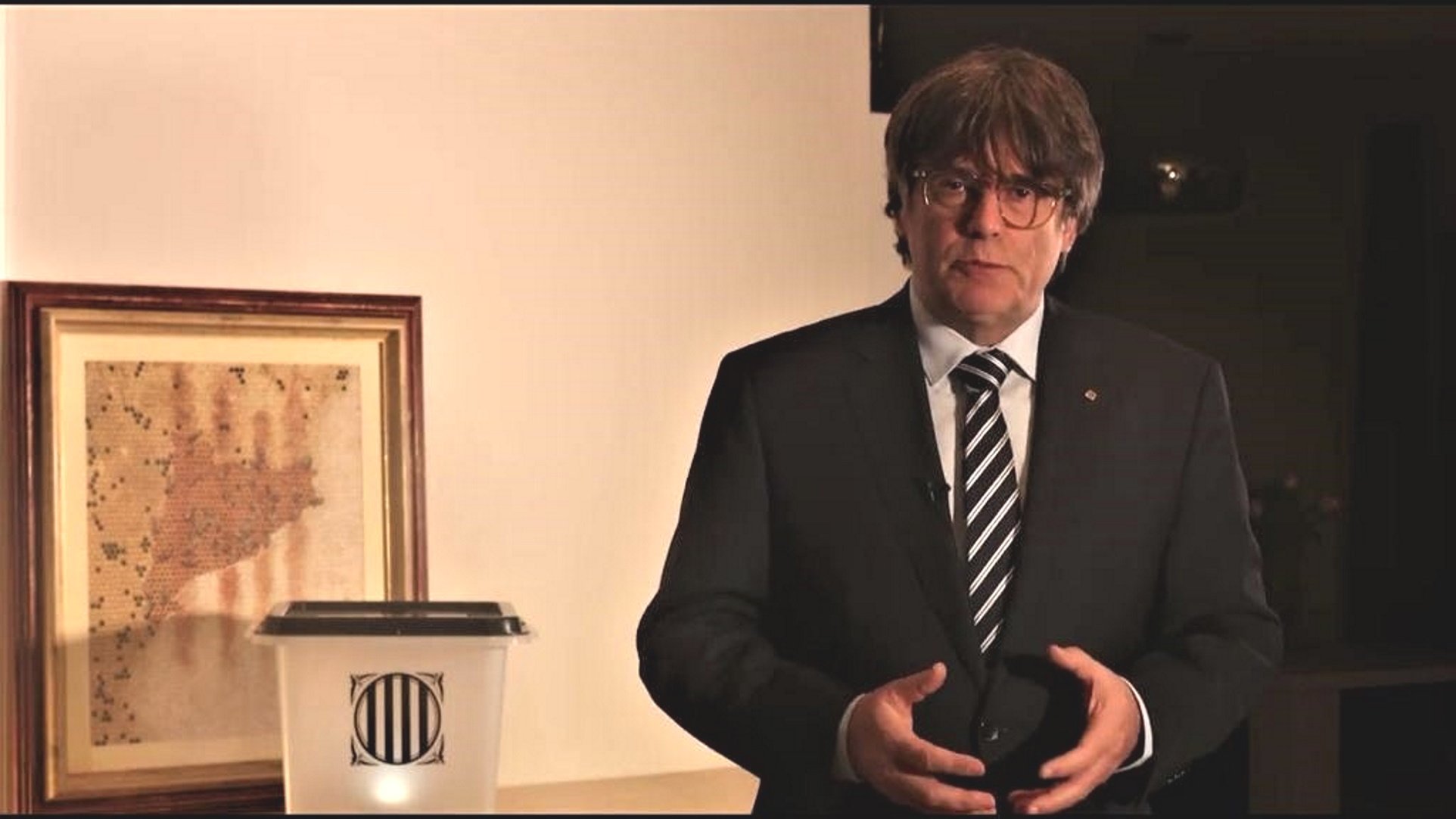"I won't return handcuffed or cowering before a Spanish judge so that he will be lenient. I will fight to return free." With these words, the Catalan president-in-exile, Carles Puigdemont, responded to the decree published today by Spanish judge Pablo Llarena on his prosecution for disobedience and misuse of public funds, now that the reform of the Penal Code repealing the sedition law has come into force. Puigdemont affirmed that he will fight the European judicial battle to the end and that he assumes the risk that the result will not be as expected because, as he argues, it is much worse to accept the idea that the Catalan government's actions in 2017 deserve any kind of condemnation. "I will not endorse for my personal benefit any policy that aims to criminalize the desire of Catalans to live definitively in a free country", he replied.
During the speech he published on his YouTube channel at 9pm on Thursday evening to assess the decision of the Supreme Court investigating judge, Puigdemont did not hide his reticence over the Penal Code reform agreed by Spain's governing PSOE and Catalonia's ERC. In the face of this strategy, he reiterated his commitment to the judicial battle in Europe. "I am aware of the political value of maintaining it and also of the damage it would do if I were to give up because it was in my personal interests," he said. The president who led Catalonia to the 1st October 2017 referendum warned that the issue is not about accepting a compromise conviction for minor offences, but of rejecting any conviction by political decision, and "that cannot be assured by any deal with the Spanish government nor any collusion with that country's justice system" .
"In Spain, politics is carried out through the courts and judicial measures are changed according to convenience, simply to achieve a political goal, which is the persecution and penalization of the independence process", he denounced at the start of his address, in which he stated that this situation has remained unchanged for the last five years and has not changed "despite the parliamentary tightrope walk", in implicit reference to the agreement between PSOE and ERC to reform the Penal Code.
An unfortunate law reform
In response to the judge's new decree, he drew attention to how a justice system that has pursued him first for a crime of rebellion, then for sedition and that now wants to arrest him for misuse of public funds - even though judge Llarena rejected this possibility in 2018 when it was offered to him by the Schleswig-Holstein court - "is not predictable justice and cannot give any guarantee of respect for fundamental rights" and, therefore, "it is not democratic justice".
The president asserted that those who were trying to see the legislative changes as a tool to reverse this trend were mistaken, and that the interpretation made today by the Supreme Court of what he describes as the "unfortunate reform of the crime of misuse of funds" is not "at all positive".
"I am not asking the Spanish authorities for any assistance for my personal situation. I do not think that personal solutions will help to resolve the fundamental conflict", he reiterated again, in addition to denouncing the violations of the political rights of himself and his exiled colleagues as Catalan representatives. "We have never allowed ourselves to be guided by personal calculations or partisan calculations. Nor will we now," he replied.
The investigating judge today made public a new judicial decree in which he adapts the procedure against the exiled Catalan politicians to the changes to the Spanish Penal Code agreed by PSOE, Podemos and ERC. Llarena compensates for the reduction of the penalties against the exiled politicians resulting from the repeal of the crime of sedition, by charging Puigdemont and former ministers Toni Comín and Lluís Puig with the crime of misuse of public funds in its "aggravated" form, which is penalised by up to 8 years' jail. Although the reform of the misuse of funds law introduced in the Penal Code reform punishes misuse of funds that does not involve a personal profit motive with a maximum of 4 years' jail, the judge maintains that this "attenuated" version of the crime cannot be applied to them.

